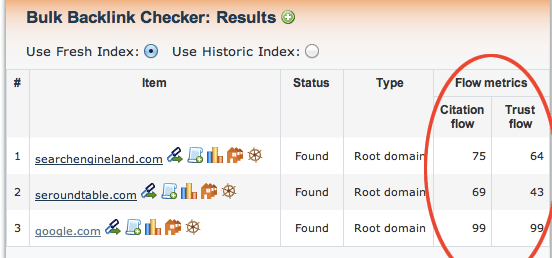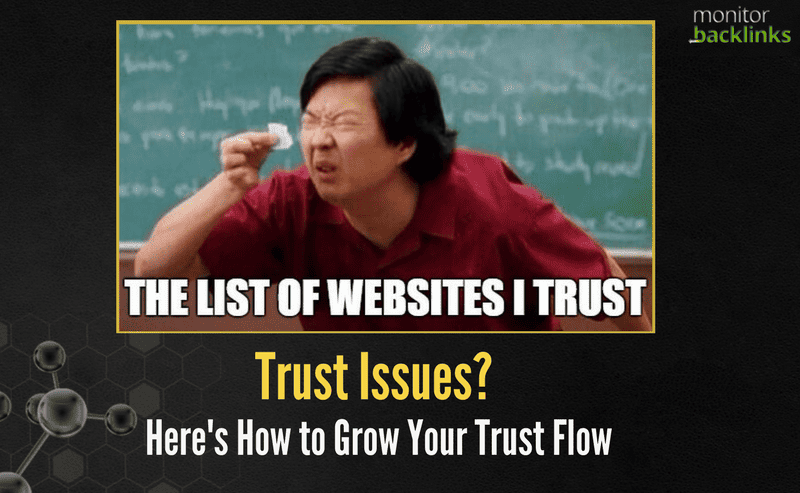Google’s ranking signals may change every year, but they still matter. They determine who shows up in search and where they rank.
That’s why smart brands hire professional SEOs and SEO content writers who can deliver organic search traffic from the people most likely to buy from them.
Which brings us back to all those updates Google makes every year…
With everything changing on a regular basis, even professionals can struggle to get web pages to the top of the SERPs.
Google doesn’t talk about their ranking factors or what they consider important. They don’t want anyone “gaming” the system. So we’re left to take our best guess, test different approaches, make a few mistakes, and see what happens.
Why go to all this trouble if Google doesn’t want to tell us what they’re looking for?
Because 55% of users click on the first three organic search results. If you want organic traffic on your website, you need to master SEO so you can rank your site as high as possible.
And in 2018, here are the ranking signals you need to focus on most:
- Content
- Mobile-first Indexing
- Page speed
- Trust Flow
Content
The most important factor to rank high on Google is content. Always was. Probably always will be. Nothing can replace the value of high-quality and engaging content.
What makes content high quality?
I’m glad you asked…
Quality content is detailed, practical, and original. It answers all of a user’s questions related to the topic or keyword they queried in Google. And it’s good enough to get shared or commented on.
It’s easier said than done, though. Imagine trying to write something that hasn’t already appeared on every other blog. How do you do that? Where do you get that information? How do you be original?
This type of content takes a long time to create. The best blogs put out infographics, case studies, podcasts, videos, and more. They’re creating a wider variety of content because it’s easier to make something original that adds value.

There’s also the debate about whether you should focus on the quality or quantity of your content.
The only tip we can give you is to focus more on quality than quantity. Why? Because quality lasts forever. A good article can last years but one with a bunch of filler words won’t even last a week.
You are more likely to engage a user in your content if it’s well written and uses eye-catching graphics rather than just long paragraphs that make your reader’s eyes glaze over.
Mobile-first Indexing
Mobile-first indexing was launched by Google on November 2016. This means a website has to be mobile compatible to have better search rankings.
Even though it was released in 2016, Google has been continuously putting out more and more statements regarding the importance of mobile-friendliness.
Today, mobile usage has surpassed desktop usage. People are doing their searches while on the go. So developers who used to built the desktop version of a site first and then built the mobile version now do the opposite to provide a better experience for mobile users.
Google mobile-first search is even changing the ranking of websites, especially when it comes to local search. Google can get the location of users through mobile phone and display search results based on their geographic location.

So, what does it mean to create a mobile-friendly site?
It means one of two things:
- Making your website responsive and very fast to load for mobile users
- Making your website AMP compatible
AMP is a new standard that Google has released and is placing priority over. It forces the website to output very efficient code for mobile users while making it have a clean UI. This results in better design and faster sites.
Although AMP requires you to recode your site, there are AMP plugins available to make your WP site AMP compatible (it only takes 5 mins!)
Page Speed
As the mobile-first indexing approach is becoming crucial as every day passes, websites which have longer load times are likely to be ranked lower.
The ultimate goal of Google is to provide the best user experience. So that’s why they will consider page speed (and design) as an important factor when ranking the websites.
Even a second can cost you a decline in sales. So there are a lot of tools which can measure the average page speed (try GTMetrix). It can also be fixed by professionals.
Worried your hosting service is slowing your page load time? HRANK rates 100 hosting services, giving you uptime and response rates for each for the past 30 days.
Trust Flow
Last but not the least, Trust Flow, created by Majestic SEO, is now considered one of the top Google ranking signals.
It’s very simple. Trust Flow is a score between 0 and 100 based on the quality of the website. Majestic has manually scoured websites and generated a list of trusted seed sites.

You can use the Monitor Backlinks Checker tool to check Trust Flow score of any website. It will also help you to identify and analyze your competition.
Why has this metric gained so much popularity in 2018?
Google understands that many bloggers are just pumping out poor-quality content and trying to get a slew of backlinks via blackhat or other methods that aren’t helping everyday Googlers.
As of recently, they’ve been putting a lot of emphasis on what kind of links your website has. If the links look in any way spammy, they may penalize you.
That’s where Trust Flow comes in to play.
It measures the trustworthiness of your site’s links. A site with a lot of Trust Flow is said to have high-quality and trustworthy links (links that are from authority sites).

You can boost your Trust Flow score by the following methods:
- Disavow poor quality links
- Use guest posting to get quality backlinks
- Develop a good internal linking strategy
- Add .gov and .edu backlinks
Play Nice with Google
Google is getting better at measuring what content their users want to see and how they interact with it. It has publicly stated they want mobile-friendly content (AMP) and sites that aren’t just trying to get links for the sake of ranking.
Although it’s important to get links, do your research and make sure the sites are trustworthy first.
Do the work to do SEO right. Get links, sure. But focus on your content’s quality, your page speed, and Trust Flow too.
In the long run, these are the tactics that will pay off.
About the author: Breto is an SEO and internet marketing expert. Always interested in learning new things and helping people online.
Feature image source: Gratisography


